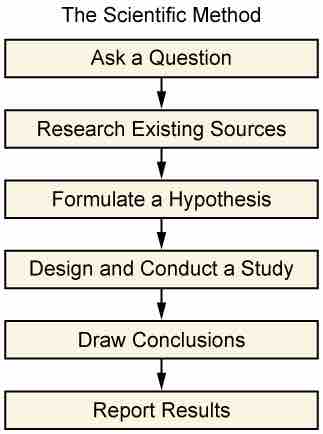A research design encompasses the methodology and procedure employed to conduct scientific research. Although procedures vary from one field of inquiry to another, identifiable features distinguish scientific inquiry from other methods of obtaining knowledge. In general, scientific researchers propose hypotheses as explanations of phenomena, and design research to test these hypotheses via predictions which can be derived from them.
The design of a study defines the study type, research question and hypotheses, independent and dependent variables, and data collection methods . There are many ways to classify research designs, but some examples include descriptive (case studies, surveys), correlational (observational study), semi-experimental (field experiment), experimental (with random assignment), review, and meta-analytic, among others. Another distinction can be made between quantitative methods and qualitative methods.

The Scientific Method is an Essential Tool in Research
This image lists the various stages of the scientific method.
Quantitative Methods
Quantitative methods are generally useful when a researcher seeks to study large-scale patterns of behavior, while qualitative methods are often more effective when dealing with interactions and relationships in detail . Quantitative methods of sociological research approach social phenomena from the perspective that they can be measured and quantified. For instance, socio-economic status (often referred to by sociologists as SES) can be divided into different groups such as working-class, middle-class, and wealthy, and can be measured using any of a number of variables, such as income and educational attainment.
Qualitative Methods
Qualitative methods are often used to develop a deeper understanding of a particular phenomenon. They also often deliberately give up on quantity, which is necessary for statistical analysis, in order to reach a greater depth in analysis of the phenomenon being studied. While quantitative methods involve experiments, surveys, secondary data analysis, and statistical analysis, qualitatively oriented sociologists tend to employ different methods of data collection and hypothesis testing, including participant observation, interviews, focus groups, content analysis, and historical comparison .
Qualitative sociological research is often associated with an interpretive framework, which is more descriptive or narrative in its findings. In contrast to the scientific method, which follows the hypothesis-testing model in order to find generalizable results, the interpretive framework seeks to understand social worlds from the point of view of participants.
Although sociologists often specialize in one approach, many sociologists use a complementary combination of design types and research methods in their research. Even in the same study a researcher may employ multiple methods.